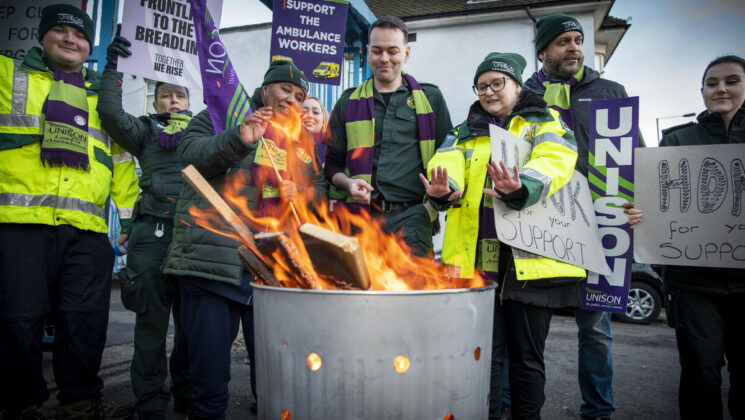East of England ambulance staff will strike next month in their first day of action in the spiralling dispute over NHS pay, says UNISON Eastern today.
The union says the strike on Wednesday 8 March is a serious escalation of the dispute and a direct result of the government’s failure to hold proper pay talks with health unions.
It will be the first time the union’s health workers in the East of England have walked out in the current NHS pay row after the successful strike vote last week which also saw ambulance staff in South Central , East Midland and West Midlands vote to strike.
This means staff will be on picket lines in all but one ambulance service in England in two weeks’ time. Colleagues working for ambulance services in London, Yorkshire, the North East, North West and South West – who have already taken action on four previous occasions – will also walk out on 8 March.
Up to 32,000 NHS workers belonging to UNISON in England are now able to take strike action. This follows the re-balloting of ten NHS employers in England, where the strike vote fell just short of the legal threshold last year.
UNISON general secretary Christina McAnea said: “Unfortunately for patients, staff and anyone that cares about the NHS, the strikes go on.
“There can be no pick-and-mix solution. NHS workers in five unions are involved in strike action over pay, staffing and patient care.
“Choosing to speak to one union and not others won’t stop the strikes and could make a bad situation much worse.
“The entire NHS team is absolutely determined to stand firm for better patient care. They’ll be furious at the government’s failure to invite their union in for talks. Not least because a deal just for nurses cannot possibly work, and nurses belong to other unions too.
“Next month staff in all but one of the ambulance services in England will walk out. They’ll be joined by thousands more NHS colleagues, many striking for the first time. The action by NHS Blood and Transport Staff will hit blood collection across the country too.
“By holding solo talks, the prime minister is condemning patients to many more months of disruption. Health workers will want assurances from ministers that they have no intention of ripping up pay agreements in the NHS. Any attempt to do so, would be an incredibly serious move.
“The government now has several billion pounds more than it thought it had in its coffers. Now he has the cash, Rishi Sunak must speak to everyone involved if the dispute is to end.
“Governments elsewhere in the UK know how pay deals can be done. Rishi Sunak must copy their example, hold proper pay talks and allow everyone to get back to work.”

